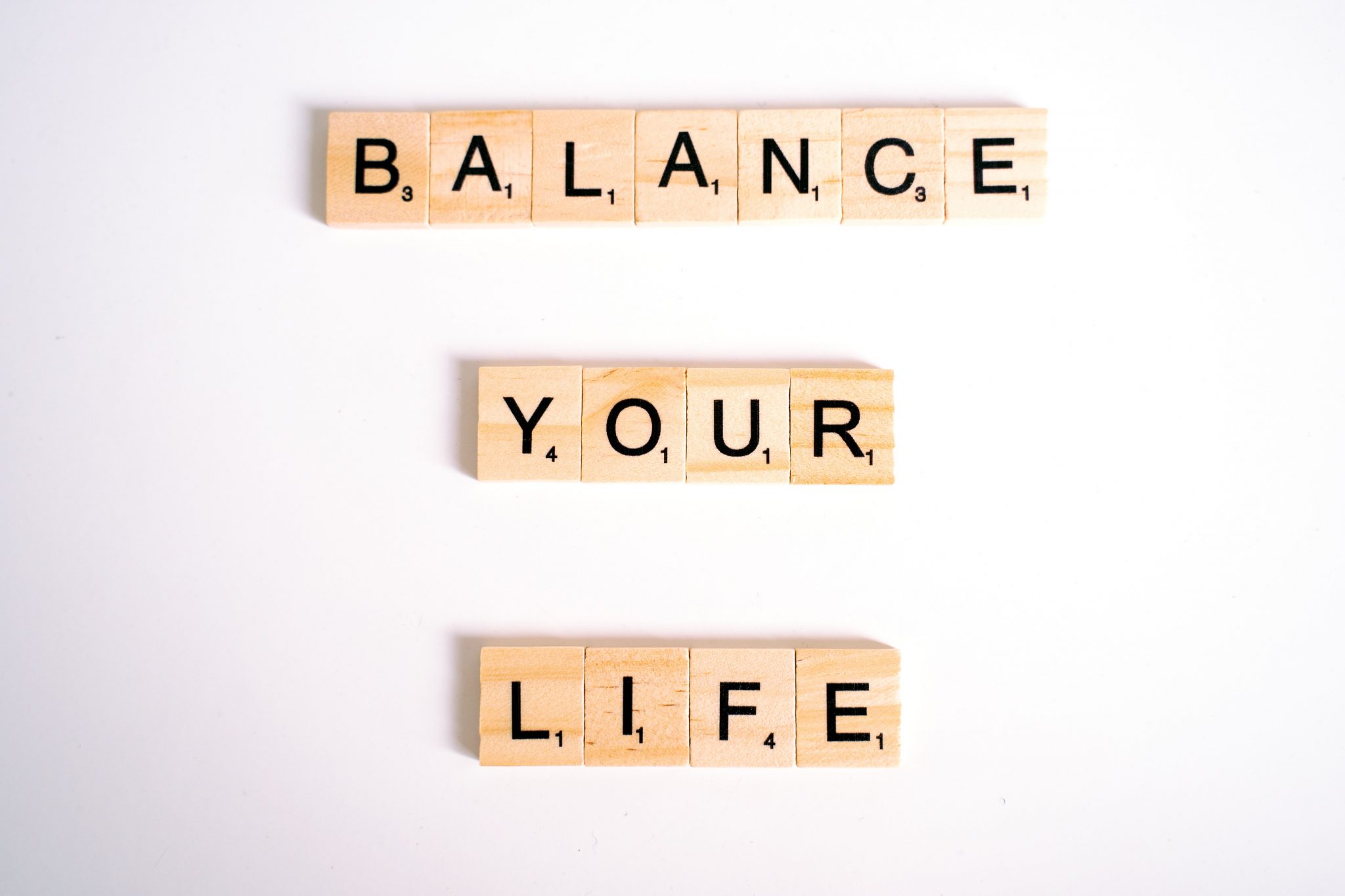2020 was definitely something else. And, like every other person in the world, I’m happy to be done with it. Here are 15 ways to kick-start 2021.
How am I saying good riddance to this terrible, no-good of year? By trying to make 2021 the best year possible. Obviously, the virus isn’t in my hands, but I do have control over the following.
1. Reflect on the past year.
John Maxwell, the author of The 15 Invaluable Laws of Growth, has an annual tradition. During the week in between Christmas and New Years’, he revisits his calendar and reflects on how he spent his time.
“The seven days I spend reviewing my year are the most productive days I’ll have in any 12 months,” he writes. “They help me focus on what I’ve accomplished and have yet to do.” And, they aid him in identifying “habits or patterns that need attention.”
Additionally, this assists him in refining his daily schedule to continue his personal growth journey. “Nothing else I do compares to the return on investment my year-end review brings me,” Maxwell states.
How can you put this into practice? Well, here’s what Maxwell does every year:
- Set aside time to review. “Good intentions aren’t enough here—you have to make time for the process,” he stresses. “If you’re just starting out, you won’t need a full week; a solid half-day (4 hours) will do.”
- Gather the right materials. “You can’t review how you spent your time without a record of that time.” Have your calendar, journals, and even checkbooks handy.
- Ask the right questions. Maxwell “interrogates” his calendar by asking tough questions. These can include, “Was that a good use of my time?” “What’s there that should’ve been deleted?” and “What will I do differently this year?”
- Write down what you learn. Maxwell says that this a crucial step. “You need to record your thoughts as you have them, or else they’ll get away.”
- Look for the patterns. “Between your calendar and what you write down, you will notice patterns emerging from the data,” he adds. “Grab onto them because they become your roadmap for action.”
- Plan out next year. “Once you’ve had time to interrogate, think, write, and discover, it’s time to put everything you’ve learned into motion,” he adds. That means putting “your biggest priorities and put them into your calendar first. ”
2. Define (and schedule) your priorities.
Let’s piggyback off that last piece of advice from Maxwell. Why? Because, in the timeless words of Stephen Covey, “The key is not to prioritize what’s on your schedule, but to schedule your priorities.”
But, what exactly are your main priorities in life? Well, that’s different for everyone. However, in a previous Calendar post, Albert Costill suggests that “they should be the things that don’t cause you pain. And, they should “assist you in becoming the best possible version of yourself, such as the following areas:”
- Your MBS. “Your main priority in life, without question, should always be your mind, body, and spirit,” writes Albert. “Maybe it’s because we perceive this as being selfish that it’s often taken for granted. But, take a second and really think about it.” Do you neglect your well-being? If so, “then how can get the most out of life, be productive, or be of service to others?”
- Healthy relationships. Close relationships, mainly friends and family, are vital for a healthy and happy life.
- Dreams and aspirations. “Whether you want to call this your calling, passion, purpose, or why, if you want to have a fulfilling life, then you need to identify what makes you tick,” says Albert. “Then, you need to pursue it no matter what.”
- Self-development. “Continuous learning and growth are essential,” he adds. “Whether if it’s enhancing your hard and soft skills and knowledge, this will make you a more well-rounded individual personally and professionally.”
- Time and productivity. Reviewing your calendar and journals, as Maxwell does, can help you conduct a time audit to see how you spend your time.
- Happiness. Life is way too short. Always make the time to do what you enjoy.
- Security. “Finally, you need to attain a level of security,” says Albert. “At the minimum, that means having a job that can put a roof over your head and food on the table.”
After you have defined what’s more important to you, block them out in your calendar so that they always come first.
3. Plan your goals.
Without fail, we make resolutions because we get swept up in the spirit of the season. Here’s the reality, though.80% of New Year’s Resolutions fail by February.
If that’s the case, then we do keep setting ourselves up for failure? “By establishing objectives, resolutions create an end result to center your goal-making on,” explains team Tony. A goal, on the other hand, “is a series of calculated steps designed to help you achieve the resolution.”
“Goals, not resolutions, are the key to long-term growth and success,” they continue. “And the secret to setting compelling goals is knowing why it is you want what you want – finding purpose and meaning in your goals.”
With that in mind, forget about making New Year’s Resolutions. Instead, replace them “with objectives that work.” And, you can achieve this by:
- Decide and commit to making a change. “Make the decision now that you’re going to change some aspect of your life, and then commit to making it happen,” recommend Team Tony.
- Document what you want. Jot down exactly what you want so that you’ll remember. You can also refer to this if you get off-track.
- Find absolute certainty and take action. When starting out, it’s OK not to know how you’ll make it a reality. “But regardless of how far along you are in your plan to achieve your goal, you must operate from a mindset of absolute belief and faith that you can accomplish it.”
- Measure your progress. “Set a reasonable timeline for your goals, and measure your progress along the way,” advises Team Tony.
- Keep going. Setbacks are to be expected. Don’t throw in the towel, though. Learn, grow, and continue moving forward.
4. Organize your activities for the next 6 to 12 months.
There’s another benefit of reviewing your calendar that Maxwell didn’t include. It’s able to spot recurring events. It could be anything from weekly meetings, fundraisers, birthdays, vacations, or your kid’s school schedule.
Obviously, the exact dates won’t line-up. But, it will give you an idea of what activities to anticipate this year. And, if there’s one lesson I remember from G.I. Joe, it’s that knowing is half the battle.
In other words, if you know that during the first two weeks of July, your family goes on a trip, then put that in your calendar so that nothing else will get scheduled. More importantly, this gives you enough of a head’s up to plan accordingly, so that you won’t worry about work when away.
5. Fine-tune your routine.
Compared to the beginning of last year, your routine has been disrupted. Don’t harp too much on this. After all, none of us foresaw a pandemic that would change the world.
While you might have made do to get through this tumultuous year, it’s time to get back on track. Ideally, this means setting morning and evening rituals to refill your emotional gas tank. And creating a schedule that allows you to follow through on your goals and priorities.
6. Take out the trash.
Before you can move forward, you need to let go of what’s holding you back. Think of it this way. You want to ride your bike more often to get in shape, but your garage is so full of junk you can’t reach it.
In the scenario above, you might just throw your hands up in defeat. But, if you clean and organize the space, you can finally get to your bike. And, since you removed the obstacle, there’s no longer an excuse for not going on a bike ride.
Give the new year a fresh start by decluttering your home, workspace, and vehicle. You don’t have to do this in one marathon session. Just tackle one area at a time, like spending a weekend in your home office and the next in your kitchen.
Next up? Digital clutter. Organize your inbox, electronic files, and remove unnecessary apps from your phone. And, don’t forget to go on a social media cleanse.
Also, remove toxic people from your life. Rather than continuing to waste your time and energy on these types of people, connect with those who will support and inspire you.
7. Commit to doing something new — every day.
Personally, I enjoy learning. It’s probably my favorite pastime. This is a proven way to gain new perspectives, foster innovation, become more self-confident, and reduce stress.
But who actually has the time to do this daily? Truth be told. We all do.
When it comes to learning, it doesn’t mean spending a couple of hours each day or week taking a class. It could be as simple as listening to a podcast while exercising or subscribing to feeds like Did You Know.
Other suggestions? Read a book right before bed, sign-up for newsletters, or just talk to people. For example, you could have a weekly phone-call with an elderly family member or team member and just listen to their past experiences.
8. Find your focus.
If you’ve already begun taking out the trash, then you’re well on your way. For instance, those with an organized desk are less stressed and more focused. Moreover, studies have found that smartphones, the internet, social media, and email are the most common distractions at work.
Again, clean, organize, and spruce up your workspace. Furthermore, uninstall apps that you no longer use. And, when you’re working, silence your phone or block apps/websites during this timeframe.
Since you’re probably working from home, try to work in a quiet area of the house. If that’s not an option, be transparent with your housemates. Let them know when you don’t want to be disturbed and when you’re available.
9. Give yourself more time.
This isn’t exactly true. I mean, we all have the same amount of time each day. And, it’s not like a genie is going to grant us the wish of having more than 24-hours.
Instead, brainstorm ideas on how to find little nuggets of free time throughout the day. For example, you could set your alarm 20-minutes earlier so that you can meditate, write, or exercise. If you wake-up in the middle of the night, this might be an ideal time for creative work.
Another idea would be to take a work call when taking your leisurely walk. When organizing your workspace, invite your kids to join in on the fun. Or delegate and outsource less important tasks to others.
10. Make your mental and emotional wellbeing a priority.
“Mental health is the silent pandemic that is also happening right now,” says Uma Naidoo, M.D., nutritional psychiatrist, chef, nutrition expert, and author of This Is Your Brain on Food. “With lockdowns, quarantine, physical distancing, and ongoing uncertainty—loneliness is at its peak for many. The individuals who are thriving are few and far between, as the majority of individuals are lonely and isolated with limited supports.”
In fact, research shows that the prevalence of depression symptoms was three times higher during the COVID-19 pandemic than before. More troubling? In August, the CDC surveyed 5,412 adults, and 10% admitted they seriously considered suicide in the past 30 days (compared to 4.3% in 2018).
“2020 has taught us that instead of sticking metaphorical Band-Aids on things, escaping from symptoms, or simply chasing temporary relief, we have to look at the source and redesign a life,” Perpetua Neo, DClinPsy, a psychologist and executive coach.
Right now, it’s OK not to be OK. You’re not weak if you need to reach out for help. Once you admit that and remove the stigma, find ways to attend to your mental and emotional wellbeing.
While this will vary from person-to-person, you can use teletherapy or your support system. You can also schedule a time for self-care or physical activity. It’s also recommended that you strengthen your emotional muscles by reflecting on positive feedback.
11. Start a 30-day challenge.
It’s not uncommon for us to overindulge throughout the holidays — especially during the year, we just survived. I can tell that I’ve put on a couple of pounds between not exercising as much and enjoying one too many sweets. And that’s exactly why I’m getting back into the swing of things in January.
A popular way to get back in shape and drop a few lbs is to partake in a month-long challenge, such as Whole30 or Dry January. There even challenges, like the 52-Week Money Challenge, to help you get your finances in order.
What’s appealing about something like a 30-day challenge is that they’re pretty much mini-goals to encourage healthy habits. As such, they seem more attainable than those lofty and time-consuming New Year’s Resolutions — which, again, we don’t stick with.
Here’s the thing to remember, though. Building new habits take time. In fact, research shows that it usually takes 66 days to form new habits.
What a 30-day challenge can do is at least get the ball rolling. To ensure that you succeed in making a lasting change, choose a challenge that is realistic and aligns with your goals.
And, tye a new habit to an existing one. James Clear calls this habit stacking. An example of this would be, “After I pour my cup of coffee each morning, I will meditate for one minute.”
12. Find (or become) a mentor
Regardless of what stage of life you’re in or the level of success you’ve achieved, finding a mentor is more important than ever. After all, they are here to coach, challenge, motivate, and protect you. They can also pass along advice, as well as help you set goals and grow personally.
Of course, finding a mentor and working with them in-person is a challenge during the era of COVID. But, you can still connect with them virtually, like through social media or webinars. And, you can meet with them consistently through video calls.
What’s more, a mentor doesn’t have to be someone you personally know. Let’s say that an entrepreneur like Sara Blakely, the founder of Spanx, is someone you look up to. Reading her books and watching YouTube speeches could count as being a mentor.
And, when you feel like you no longer need to be mentored, pay it forward by mentoring others. You may think that you don’t have the availability. But, if you recall, it’s all about work-life integration. You could catch-up with your mentee for 3-minutes every Friday while on your afternoon walk.
13. Keep connecting with others.
Between lockdowns, social distancing, and remote work, most of us feel lonely and isolated. Personally, I was able to make it through the year. But, the holidays were tough since I couldn’t be around friends and family.
While certainly not the same, block out times in your day to connect with others. It could be a text to a friend, a nightly phone call with your parents, or a weekly virtual lunch to check-in with your team.
14. Go easier on yourself.
One of the most important lessons to come out of 2020 was going a little easier on yourself.
Remember those extremely high expectations you set? You probably didn’t achieve them — in no fault of your own. There was a pandemic surging, and you had no control over how they would impact your plans.
Are you still holding on to past failures or losing sleep over the “shoulds”? Are you striving for perfection? None of that matters at the end of the day.
In the new year, cut yourself some slack. Learn from past failures and mistakes. Let go of the things that you can’t control. And, practice daily affirmations, such as Stuart Smalley’s, “I’m good enough, I’m smart enough, and doggone it people like me.”
15. Slow down and enjoy life.
“Slowing down is a conscious choice, and not always an easy one, but it leads to a greater appreciation for life and a greater level of happiness,” writes Zen Habits founder Leo Babauta. After the year that was 2020, I think truer words have never been spoken — or written in this case.
How can you actually slow things down in 2021? Leo suggests that you do the following:
- Do less. “Focus on what’s really important, what really needs to be done, and let go of the rest,” he advises.
- Be present. Focus only on what you’re doing at the moment.
- Disconnect. Find opportunities to unplug, like leaving your phone in another room when you’re reading or playing with your kids.
- Focus on people. When you’re talking to someone else, be fully engaged with them.
- Appreciate nature. Even if it’s cold outside, spend some more time hanging out with Mother Nature.
- Eat slower. “Instead of cramming food down our throats as quickly as possible — leading to overeating and a lack of enjoyment of our food — learn to eat slowly,” writes Leo.
- Drive slower. Let your foot off the gas a bit to appreciate your surroundings and contemplate your life.
- Find pleasure in anything. “Whatever you’re doing, be fully present … and also appreciate every aspect of it, and find the enjoyable aspects,” he states.
- Single-task.Stop multitasking and focus on one thing at a time.
- Breathe. “When you find yourself speeding up and stressing out pause, and take a deep breath.”
So, those are my suggestions on how to kick-start 2021. Do you have any other ways on how to get the new year started on the right foot?






